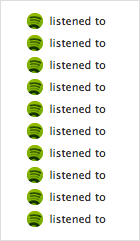 Much as I’m tempted to talk about Facebook privacy, I’m going to resist. Plenty has been written about Facebook and privacy, Facebook and “forced” sharing, Facebook and sharing by default, Facebook this and Facebook that. And I’m sure much more will be written about it.
Much as I’m tempted to talk about Facebook privacy, I’m going to resist. Plenty has been written about Facebook and privacy, Facebook and “forced” sharing, Facebook and sharing by default, Facebook this and Facebook that. And I’m sure much more will be written about it.
Tim O’Reilly has been supportive of Facebook. The company has frequently been clumsy, but it’s also been willing to push the limits of privacy in ways that might be potentially creative and in ways that might potentially create more value for us than we give up.
But none of the many reactions to Facebook get to the core of the problem, which isn’t privacy at all. The real problem becomes visible when you look at it from the other direction. What effect does massive sharing have on the recipients? Let me ask the question in another way. Maybe I care if you see all the music I listen to; maybe I don’t. Maybe I’m embarrassed if you find out that I mostly listen to dignified classical music but occasionally go slumming with Beyonce; maybe I’m not. But turn that around: while I might be interested in what you listen to, I have hundreds of Facebook friends; do I really care to be informed about what everyone is listening to? Do I really care to keep up with everything that they’re reading? A little bit of information (cool, I didn’t know that Bert Bates is a Dead Head) is interesting, but a deluge is The Big Snore.
The other day, I read a perceptive article, “In Defense of Friction,” arguing that “automated trust systems undermine trust by incentivizing cooperation because of the fear of punishment rather than actual trust.” That’s a profound point. If we rely on computational systems for a trust framework, we actually lose our instincts and capacity for personal trust; even more, we cease to care about it. And there’s a big difference between trusting someone and relying on a system that says they’re trustworthy.
Taking this a couple of steps further, the article points out that, to many people, Facebook’s “frictionless” sharing doesn’t enhance sharing; it makes sharing meaningless. Let’s go back to music: It is meaningful if I tell you that I really like the avant-garde music by Olivier Messiaen. It’s also meaningful to confess that I sometimes relax by listening to Pink Floyd. But if this kind of communication is replaced by a constant pipeline of what’s queued up in Spotify, it all becomes meaningless. There’s no “sharing” at all. Frictionless sharing isn’t better sharing; it’s the absence of sharing. There’s something about the friction, the need to work, the one-on-one contact, that makes the sharing real, not just some cyber phenomenon. If you want to tell me what you listen to, I care. But if it’s just a feed in some social application that’s constantly updated without your volition, why do I care? It’s just another form of spam, particularly if I’m also receiving thousands of updates every day from hundreds of other friends.
So, what we’re seeing isn’t the expansion of our social network; it’s the shrinking of what and who we care about. My Facebook feed is full of what friends are listening to, what friends are reading, etc. And frankly, I don’t give a damn. I would care if they told me personally; I’d even care if they used a medium as semi-personal as Twitter. The effort required to tweet tells me that someone thought it was important. And I do care about that. I will care much less if Spotify and Rdio integrate with Twitter. I already don’t care about the blizzard of automated tweets from FourSquare.
Automated sharing is giving Facebook a treasure-trove of data, regardless of whether anyone cares. And Facebook will certainly find ways to monetize that data. But the bigger question is whether, by making sharing the default, we are looking at the end of social networks altogether. If a song is shared on Facebook and nobody listens to it, does it make a sound?
Related:
